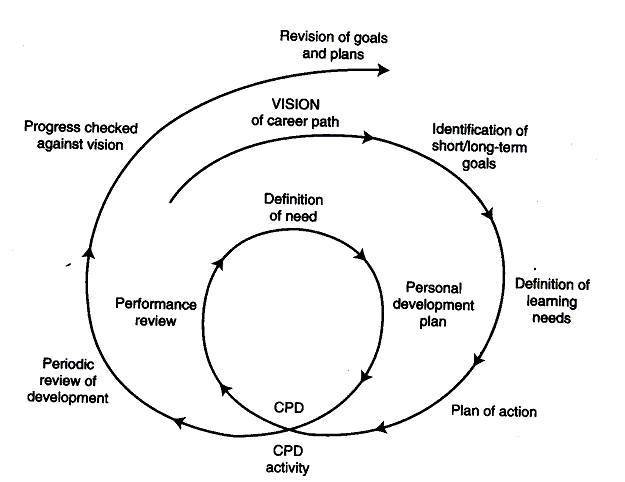Vol. 12 No. 4, October, 2007 | ||||
Little is known about one-person librarians in Ireland, let alone their continuing professional development (continuing professional development) needs. Even their overall number has never been established. This phenomenographic study examines conceptions of Irish one-person librarians of continuing professional development, their needs and future demands, level of participation as well as areas for improvement in provision. The position of one-person librarians within an organisation is unique in that that they cannot participate in professional development the same way librarians employed at a larger library can. Time, lack of money and lack of support can be barriers. Yet the importance of continuing professional development is evident. As An Chomhairle Leabharlanna/The Library Council stated in its key report Joining Forces (1999: 175): 'Professional education should be relevant to the practising needs of library and information service staff and should reflect their diverse needs in a consistently changing environment�The lack of provision for continuing professional development is a major barrier to the development of libraries and information services.'
The importance of meaning is at the centre of this research project. The purpose of it is to investigate one-person librarians' opinions on continuing professional development as stated in their own words and reflecting their own experience of phenomena, thus engaging in an empirical approach. Phenomenography takes this �second-order perspective� investigating underlying ways of experiencing the world, phenomena and situations (Marton and Booth 1997).
The project is also informed by the tradition of evidence-based librarianship, which has been described as '... a means to improve the profession of librarianship by asking questions as well as finding, critically appraising and incorporating research evidence from library science (and other disciplines) into daily practice. It also involves encouraging librarians to conduct high quality qualitative and quantitative research.' (Crumley and Koufogiannakis 2002: 62).
The following fields were examined:
These will be pilot tested in order to exclude any ambiguities of wording, to gain confidence as an interviewer and to ensure that the recording equipment is in working order. The pilot interviews will not form part of the final set of interviews to be analysed.
Purposive sampling will be used, which is widely employed in phenomenography. Potential bias in selection is acknowledged, but as the emphasis is on maximising the variation in ways of experiencing a phenomenon, a broad variation of characteristics of the participants is needed:
Additionally, sets of interviews with librarianship and information science course providers in Ireland and some experts from outside Ireland will be conducted in order to understand their experiences and make recommendations for improvement.
Usually, more than one researcher analyses the interviews, with others playing 'devil's advocate' when checking on interpretive rigour, but there have been studies were a lone researcher successfully analysed a phenomenography study, particularly in PhD projects (e.g. Åkerlind 2005, whose doctoral supervisors fulfilled that role).
So far, an extended literature review has been conducted. It focused on other studies on continuing professional development for librarians in general and some key texts on continuing professional development for one-person librarians in other countries.
Many other professions have already acknowledged the need for continuing professional development and have developed models of the continuing professional development process, e.g., nurses and therapists.

It is hoped that one outcome of this study would be recommendations for a national framework for continuing professional development for one-person librarians.
| Find other papers on this subject | ||
|
� the authors, 2007. Last updated: 18 August, 2007 |